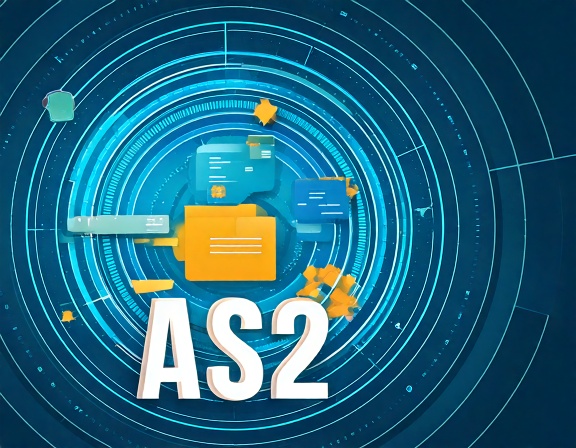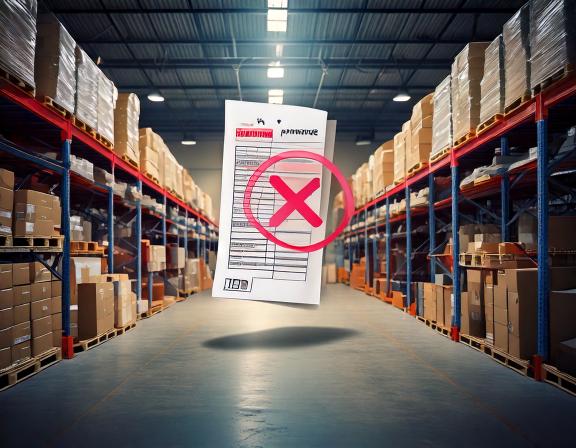MFT Gateway is a hosted Software as a Service (SaaS) solution that enables file exchange over the AS2 or SFTP protocol, without the need to install or maintain.
- Blog
- Why Businesses Need MFT
S3
Why Businesses Need MFT
Learn why businesses need MFT to ensure secure managed file transfer over AS2 and multiple protocols
Published: 10 Jul 2020

Regardless of the industry, any business requires a secure and reliable exchange of information with business partners. This is where most large corporations go ahead with managed file transfer (MFT) software to have control and better security for their movement of data and IT infrastructures while replacing old-fashioned, non-compliant file transfer methods that account for the highest cost of maintenance in comparison. And most importantly, an MFT provides the space to engage and communicate with multiple industry-standard protocols like; SFTP, FTP, AS2, etc.
2020 Global Market Study on Managed File Transfer (MFT) Software & Service was valued at US$ 1,032.8 Mn in 2016 expecting a CAGR of 7.2% during the forecast period (2017–2025) and expected a CAGR of 9.3%during the forecast period (2018-2026). The same report states that revenue generated by the global managed file transfer software and services market is estimated to exhibit a single-digit CAGR, and hence, reach US$ 2.7 Bn by 2026 (projected to reach a valuation of US$ 2,689.0 Mn by the end of 2026, up from an estimated US$ 1,320.7 Mn in 2018). According to Market Research Future Analysis, MFT Software and Service have been valued at USD 1750 million by 2022 growing with 11% of CAGR during the forecast period 2016 to 2022. Considering the MFT market share by region holds 24.7% of the share.
Providing File Security & Meeting Compliance Regulations
These publications identify Banking, Financial Services & Insurance (BFSI), media & entertainment and retail, manufacturing followed by other industries as major contributors to the global MFT software based on application. The BFSI segment accounted for the highest market share of 37.0% in 2016 and the telecommunication segment accounted for a market share of 10.0%. BFSI still remains in the lead, estimated to hold approximately 26.7% of the market share in
- However, considering the key industries focused by major MFT software providers; logistics and transportation, wholesale & distribution, e-commerce, healthcare, software & technology. All these sectors are subject to specific legislation governing how data should be handled and protected. This also differs based on the country.
- Payment Card Industry Data Security Standard (PCI DSS)
- Sarbanes Oxley (SOX)
- Health Insurance Portability and Accountability Act (HIPAA)
- General Data Protection Regulation (GDPR)
- Gramm–Leach–Bliley Act (GLBA)
Automating Efficiency while Securing Flexibility
When an organization exchanges thousands of messages, saving time and cost come in as critical matters. An MFT can not only reduce possible human errors through automation but also use multiple protocols under one roof. While on-premise and cloud versions of MFT Software are evolving at a pace, the trend towards serverless cloud EDI on AWS gives a better option to optimize cost with a pay-as-you-go approach. This avoids the hassle of having to pay for traditional servers while having a competitive pricing selection. This adds the flexibility on top of the efficiency, that the technology has been able to deliver over the years and yet has the opportunity to grow as a SaaS. MFT providers touch the pain points of B2B trading through providing advanced workflows, secure file transferring via AS2, and secure folders or alternatives such as AWS S3 integration, and the list continues.
One solution to Overcome a Pandemic
2020 was the year of introducing new ways of working remotely, which was never thought of as serious as now if not for Covid-19. The importance of remote solutions turns extremely important in such situations where security is a major concern for confidential business transactions. An EDI or an MFT plays a major part in serving businesses with secure and reliable file transfer protocols that couldn’t be satisfied by frequently used file sharing methods such as DropBox, SharePoint, or WeTransfer. This is also the very reason why it is popular among such industries that frequent confidential data shared at a B2B level as well as a B2C level.
The business need of an MFT finally drills down to whether it supports the ROI that provides security, automation while justifying the interdependence between business partners. Businesses will evolve where security breaches and hacking methods will also evolve alongside as long as the technology is unstoppable. All that can be done is to explore other avenues of securing data and information so that it doesn’t affect overall business relationships.
Talk to an EDI Expert
Join hundreds of organizations already taking full control of their B2B AS2 communications with our trusted solutions. Contact us today to tailor a solution that fits your specific AS2 EDI needs.
Related Articles
View All BlogsExplore our product stack
Try before you buy with a 30-day Free Trial
No commitment, all value. Try the AS2 Solution Risk-Free and discover how our solutions can transform your business workflows. No credit card required.
Explore Your Possibilities
Elevate AS2 Communications with our EDI and AS2 Solutions
See how our AS2 and EDI solutions can simplify your integrations, boost efficiency, and keep you compliant—request a personalized demo today.





















































































































































































